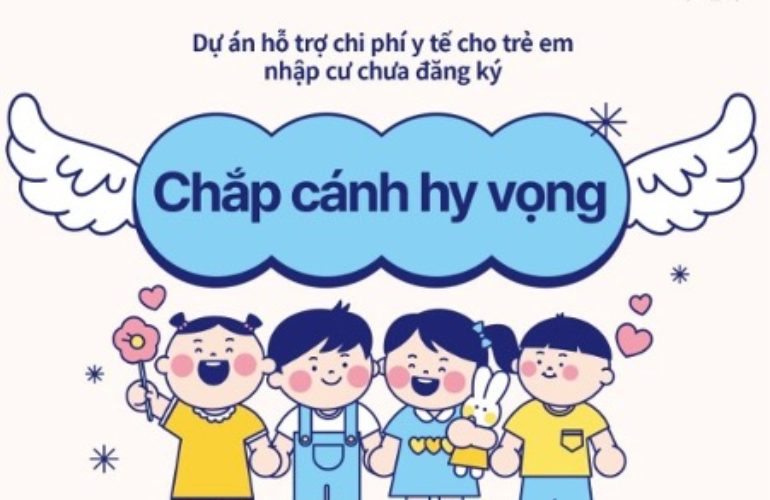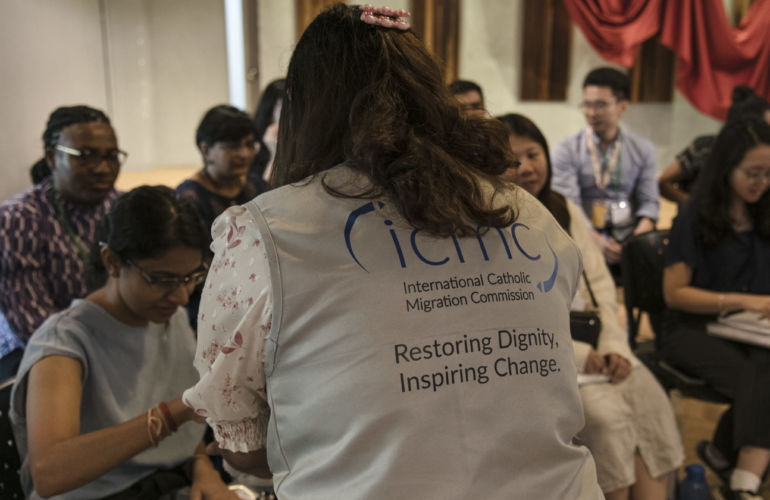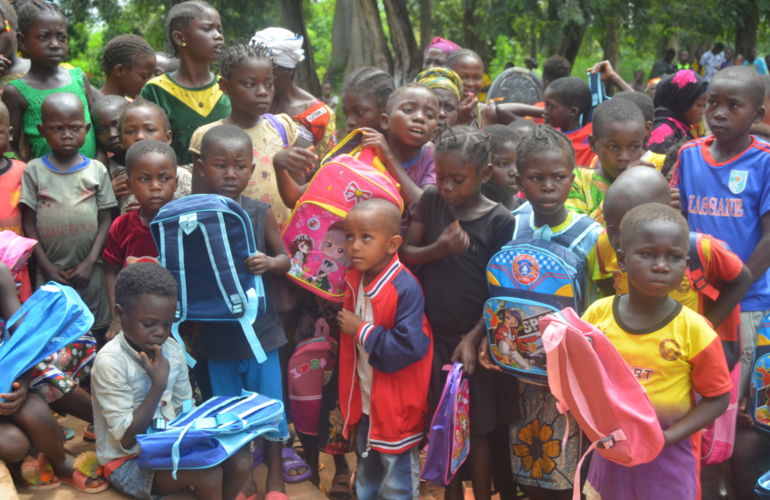Fighting Child Marriage Through Theater
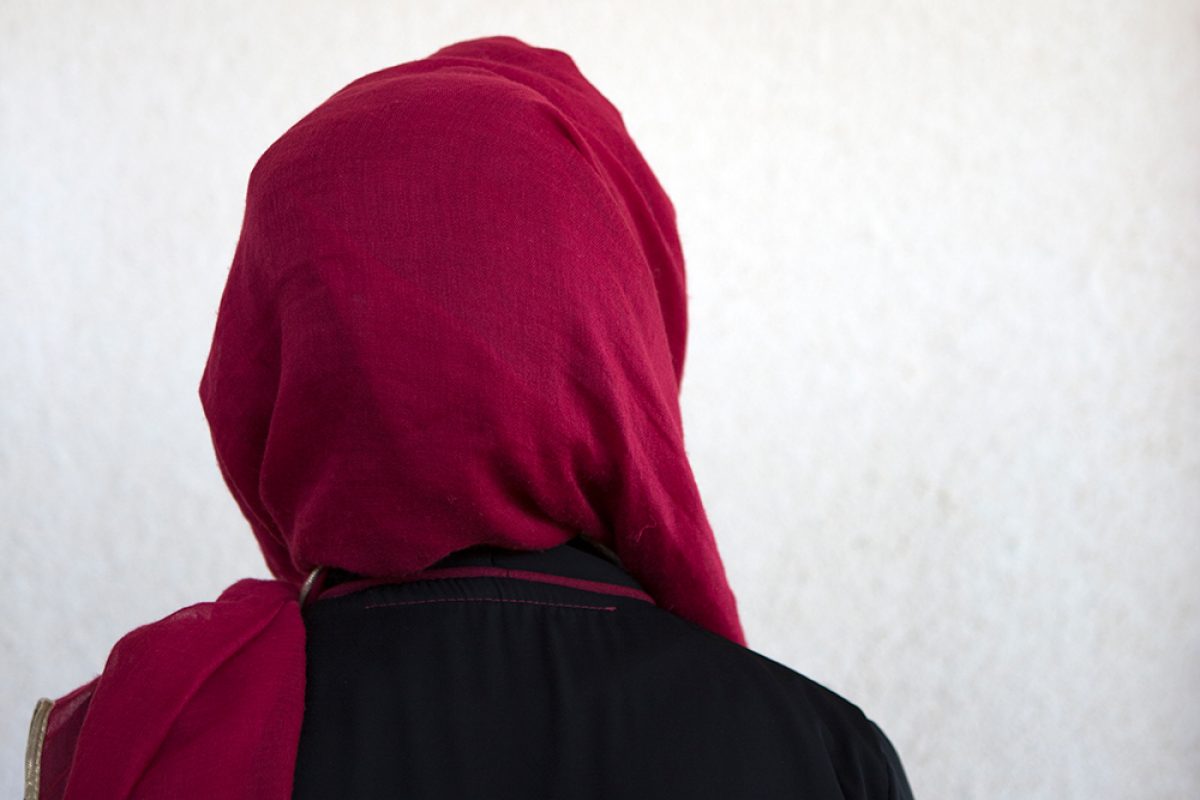
Child marriage has been in the rise in Jordan over the past few years and Syrian refugee girls are most at risk. Through theater, the International Catholic Migration Commission is fighting the trend by promoting awareness of early marriage’s adverse impacts on the mental, social, and emotional development of the girls it affects.
“Nahed’s story” is a theater play about a 14-year-old child bride forced by her parents to marry an older man. The parents are motivated by financial gain and the play features the abuse their daughter endures at the hands of her husband. It also highlights the direct consequences of child marriage, which include depriving children of their right to education and subjecting a mother and her children to the risk of gender-based violence.
The International Catholic Migration Commission (ICMC) in Jordan and the National Center of Culture and Arts – King Hussein Foundation’s Interactive Theater Group held the play for ICMC’s Protection Center beneficiaries in Mafraq on 21 August 2019.
The actors captured the audience’s attention through their honest embodiment of the plot. By emulating a reality close to the spectators’ lives, they provoked the audience to think about the issues presented, motivating them to find solutions. Audience members wished to influence the characters with their ideas and thoughts, which they shared during a discussion that followed the play.
During this discussion, a woman in the audience spoke of her experience with child marriage and of how she managed to regain control of her life. “I was like Nahed. At 14, my parents married me to an older man. He was 35 years older than me. However, I did not let the problems get the better of me. I fought hard to take control of my life and was successful. I got custody of my children, and my eldest is now a high-school senior.”
This woman’s story is an example of the play’s success in motivating women and girls to come forward and speak freely about their experience.
“Our methodology aims to allow the audience to seek solutions to the issues the play presents. Their attempts to introduce positive change to the characters’ mindsets and lives gives them a sense of satisfaction,” explained Muhannad Al-Nawaflah, Programs Manager at the King Hussein Foundation.
“I was greatly impressed by the audience’s high level of awareness on the issue. The women here today were fully conscious of the negative impact of underage marriage and were adamantly against it,” he added.
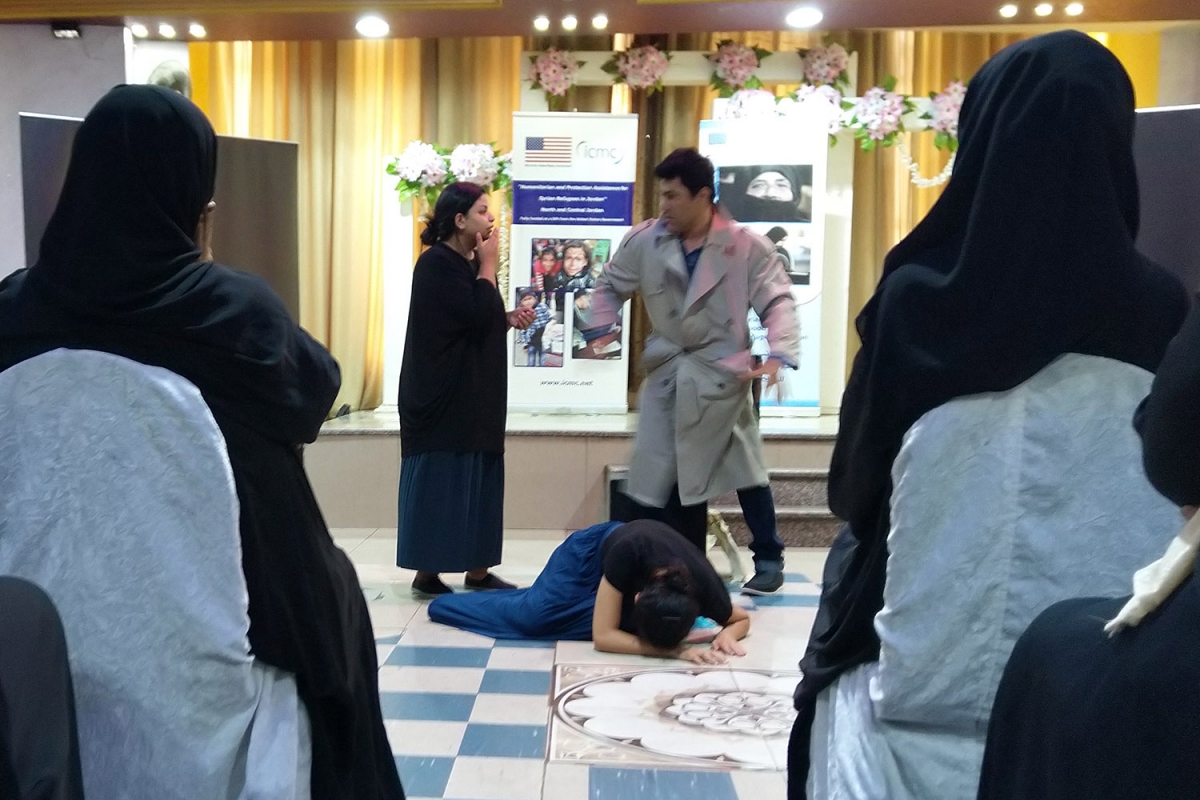
Occurrences of child marriage have increased in Jordan over the past years, with the Syrian refugee population accounting for a large portion of the rise. In 2015, one-third of Syrian women who registered their marriage with Jordanian authorities were actually girls under the age of 18, an increase from 18% in 2011. However, as many Syrians never register their marriage, the actual number of child marriages may be much higher.
For many families living in a situation of humanitarian crisis, early marriage is a desperate attempt to protect their daughters. Parents who fail to provide for their children and who fear that their precarious living situation will put their daughters at risk of sexual violence may view early marriage as a way to protect them and ensure that their material needs are met.
But early marriage has severe consequences on the lives of child brides and of their children. It can lead to increased risks of complications during pregnancy and childbirth as well as increased maternal and infant mortality. Underage brides are almost always denied the right to education, which leads to decreased earnings and reduced decision-making power throughout their adult life. The children of girls married under the age of 18 are also less likely to access education.
This interactive play is one of several methods ICMC Jordan’s Protection Center employs to raise awareness on topics such as gender equality and gender-based violence; violence against children, children’s rights and access to education; the rights of children with disabilities and their integration with their peers and positive parenting.
The role of ICMC Jordan’s Protection Centers is not limited to preventive awareness-raising programs. It extends to a variety of initiatives for vulnerable refugees and host communities, including the strengthening of life skills, the mobilization of men and boys as agents of change to transform gender relations and Arabic and English literacy classes. ICMC’s counselors offer support designed to improve psychosocial wellbeing and decrease social isolation. All these programs are tailored to meet the needs of men and boys, women and girls of different ages.
The Protection Centers also provide Child Friendly Spaces for boys and girls, where children can interact and develop their skills in an atmosphere filled with tolerance, compassion, and creativity.
